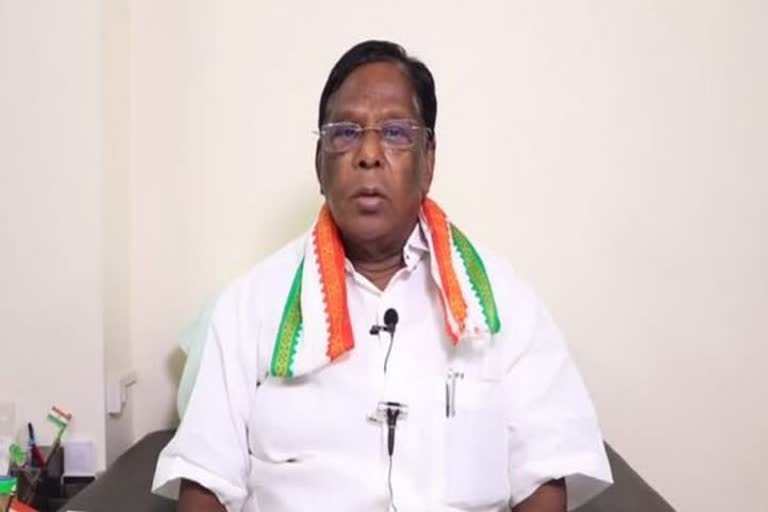Puducherry: Chief Minister V Narayanasamy said on Tuesday that the territorial government was planning to rope in practitioners of Siddha system of medicine to treat COVID-19 patients.
Addressing reporters through video, Narayanaswamy said that he, along with Health Minister Malladi Krishna Rao, would hold a meeting with the Siddha practitioners soon to evolve an action-plan against coronavirus, as the indigenous method of treatment is believed to have no side-effects.
Also read: COVID-19 news from across the nation
Several states across the country, including Tamil Nadu, have been resorting to the Siddha system for treatment of the patients.
"We will also follow suit and hold a meeting with the practitioners to evolve an action plan to adopt the Siddha system," the Chief Minister said.
Stating that the incidence of the pandemic was now coming down in Puducherry, he said the recovery rate was also encouraging. "The rate of recovery is more than 56 per cent now. However we should intensify our steps further and go in for tests of more samples to establish a better record," he said.
The centrally administered JIPMER had an installed capacity to test 1,000 swabs a day while the territorial government-run medical college hospital could test 400 swabs a day. "We should ramp up the tests so that we can zero in on the patients on a larger scale," he said.
He said that in response to the plea by the government, a good number of private medical colleges here have come forward to establish within a week testing facilities on their premises.
The Centre had also permitted private medical colleges to carry on RT-PCR tests, hence the role of private institutions was of great help, he said.
The government had also pressed into service mobile units to collect swabs for testing as this would help broader coverage of the people in urban and rural areas.
Narayanasamy, along with Congress legislator A John Kumar, had earlier visited some containment zones and asked the revenue officials to ensure that the essential commodities were distributed to the residents in the zones.
He said IAS officers were also allowed areas to supervise and ensure proper implementation of anti-COVID-19 measures to prevent the spread of the ailment. "There is a coordinated work by officials, health professionals and members of ASHA unit to contain the spread of the pandemic," he said.
(PTI report)



